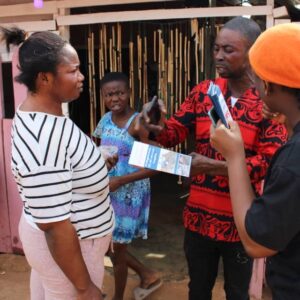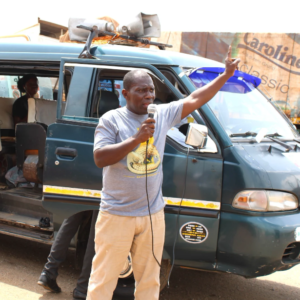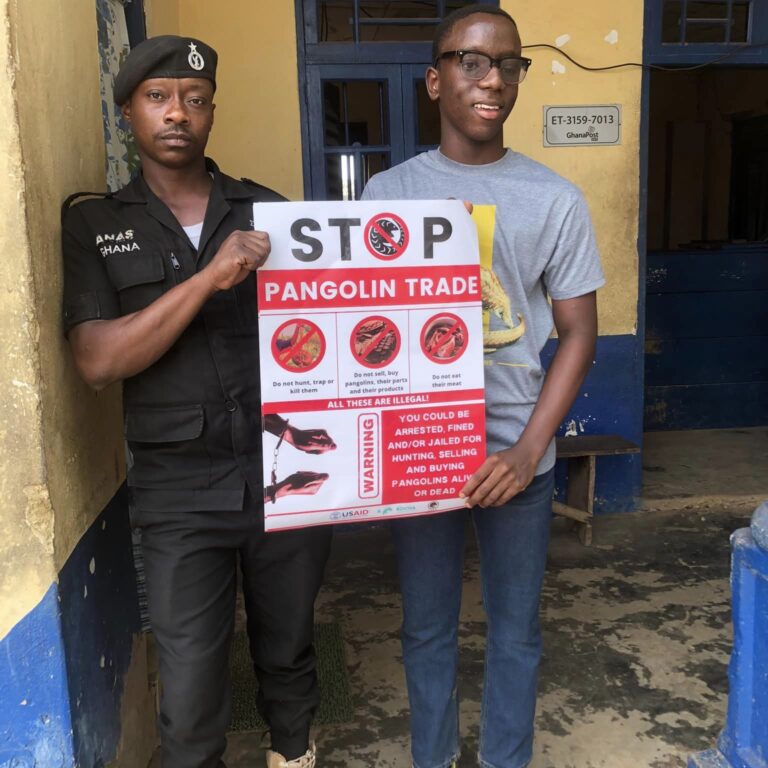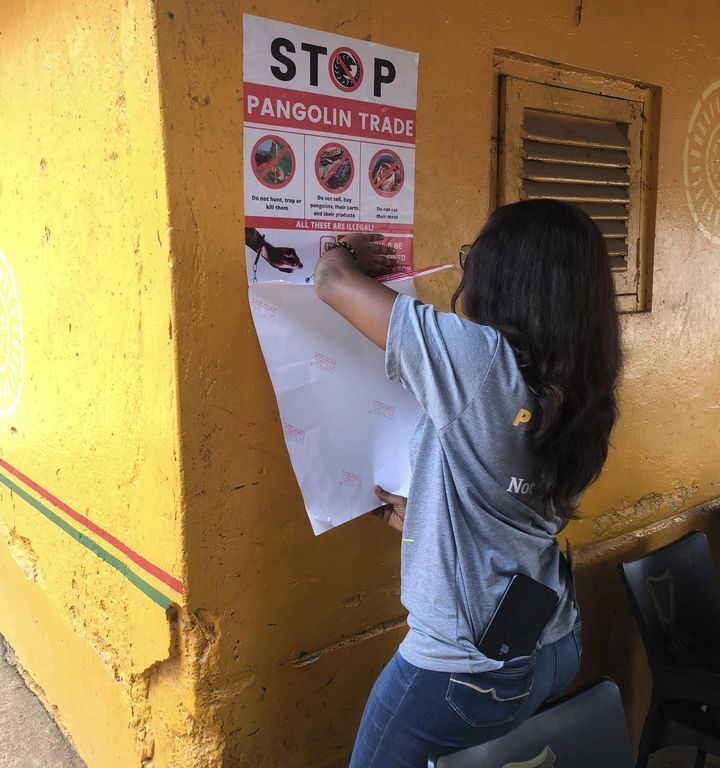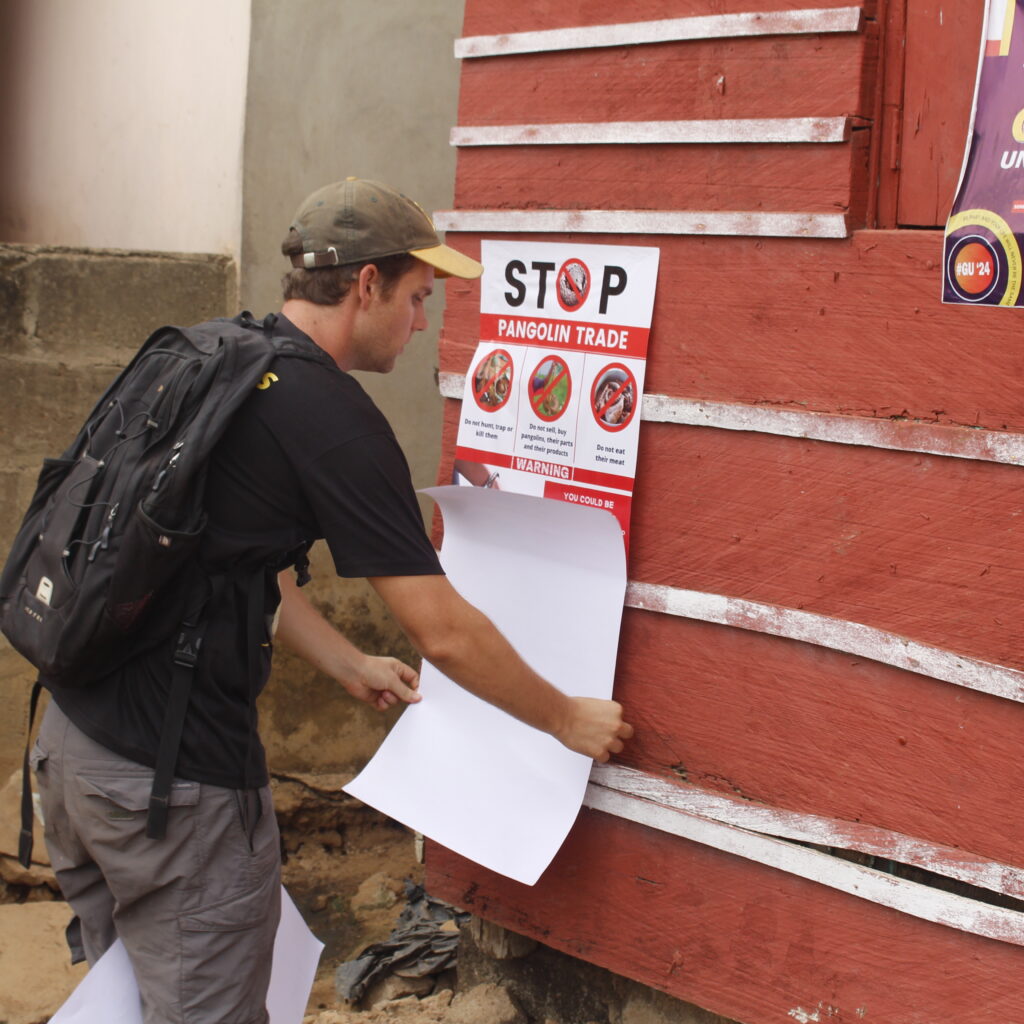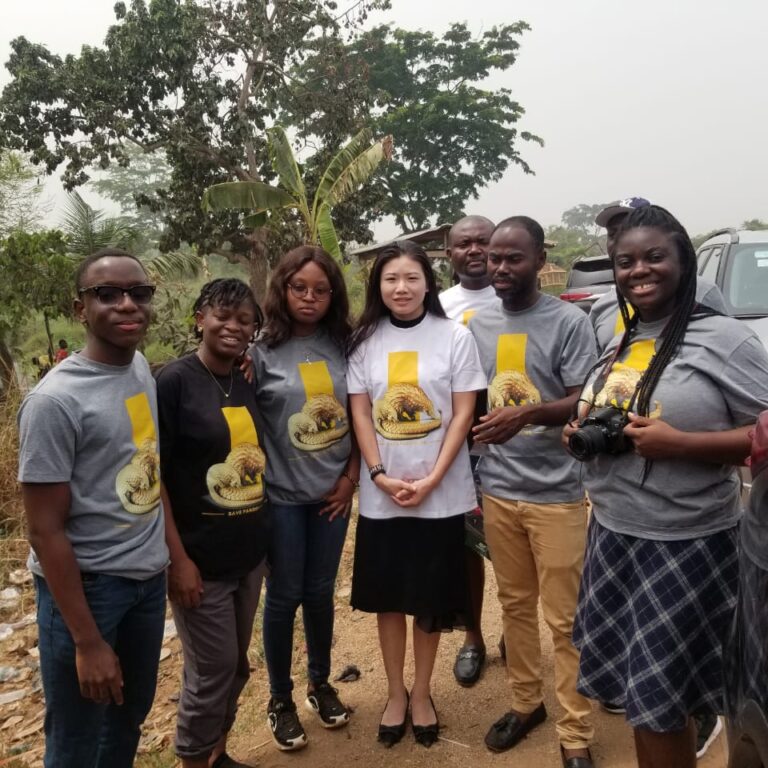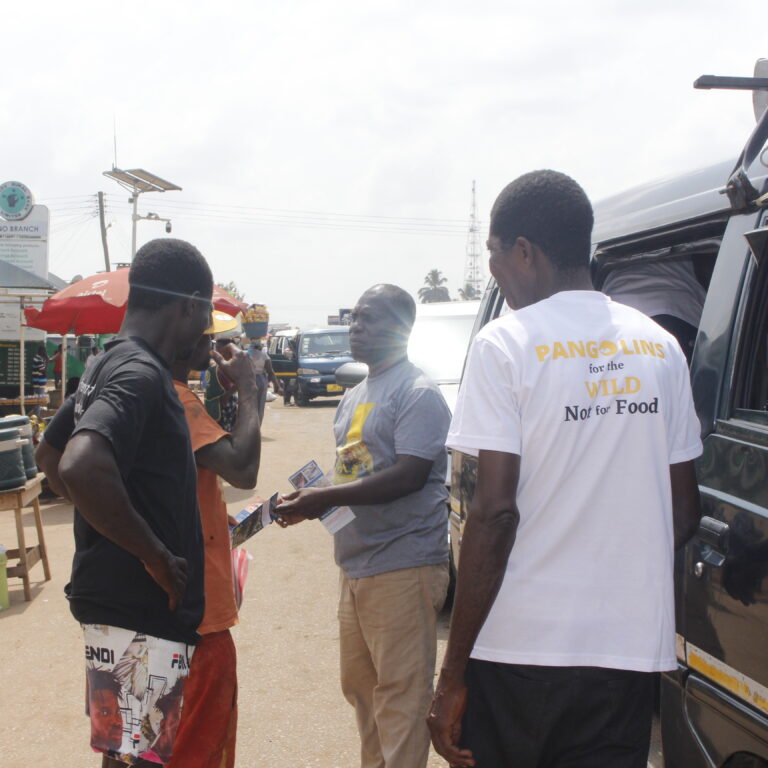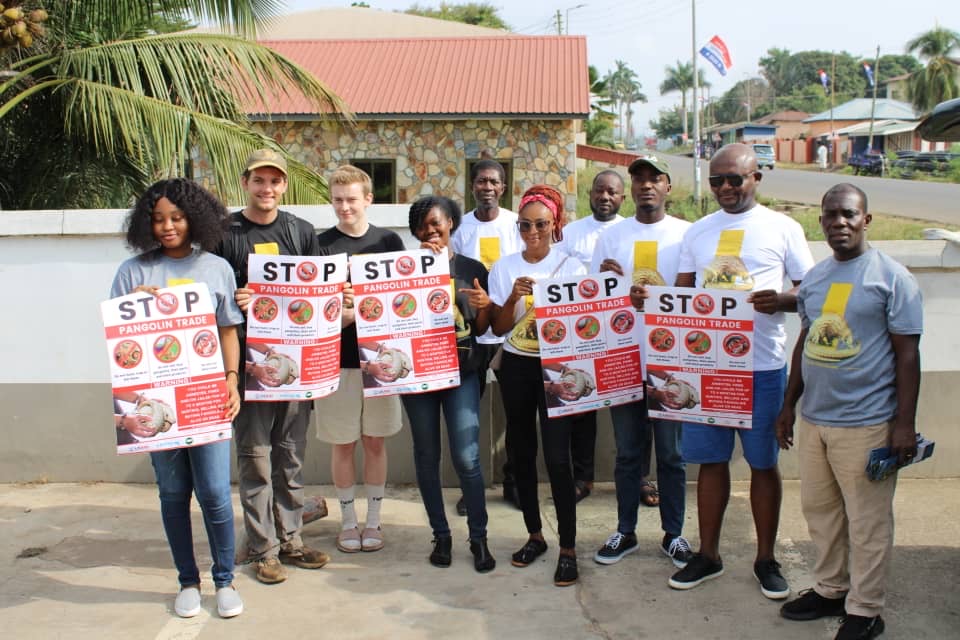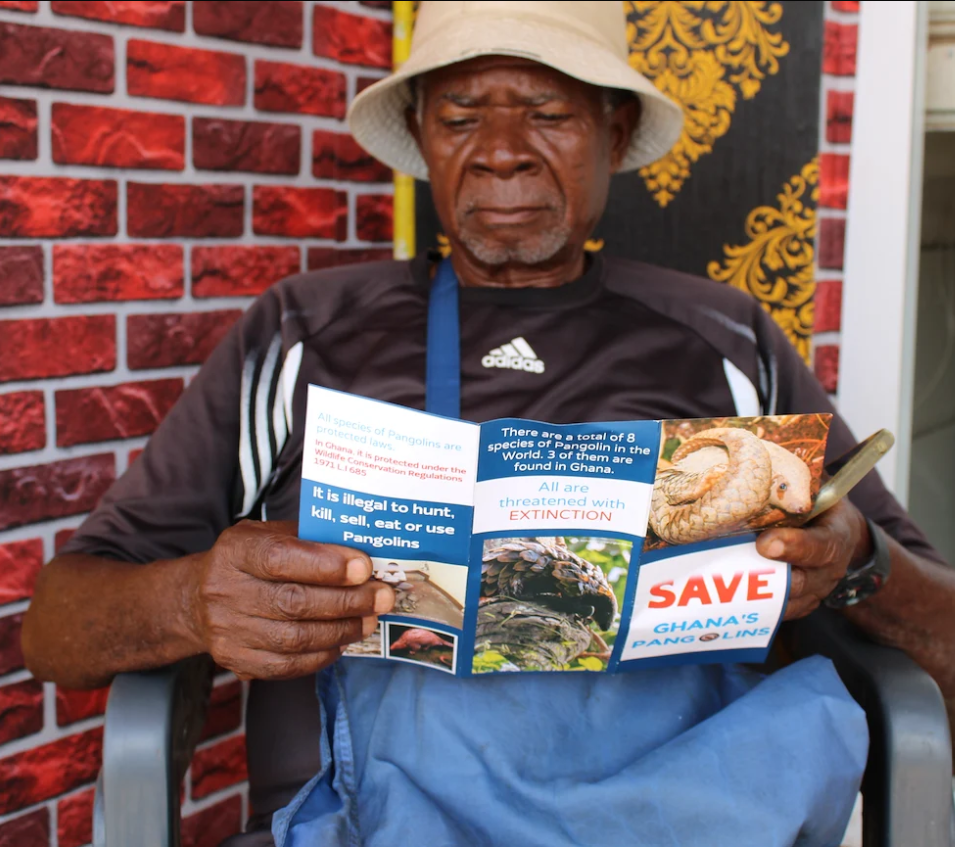
Pangolin awareness and protection have taken a big leap since A Rocha Ghana’s advocacy campaign began about six years ago. From hunters in the wild to bush meat sellers on the highways; from ‘chop-bar’ operators to the youngest of community people, we have spared no stakeholder in the pangolin trade. Our relentless effort to protect Pangolins—the world’s most trafficked mammals- yields results that we are happy to share with the rest of the world.
When the campaign to sensitize communities on the sale and patronage of Pangolins and their meat began, it seemed like a long haul. The possibility of changing an age-long tradition and the love for a venerable delicacy seemed like a mirage. Today, we are proud of the communities that have made conscious efforts to allow Pangolins to remain in the wild and not hang up on a stake for food.
Through several collaborations like what we have with the United States Agency for International Development’s WABiLED programme, we have consistently engaged communities on the Accra- Kumasi Highway as well as communities fringed around the Atewa Range Forest Reserve.
Success in Patches
The past years have seen bush meat sellers remove pangolin meat from their carts and restaurants from their menus. Last year, we captured the story of the Abossey Okai Chop Bar—a popular chop bar at Nkwakwa in the Eastern Region of Ghana and how an erstwhile supplier of pangolin soup had become a huge advocate for pangolin protection. This year, the restaurant owner with permission from the District Assemblies, has allowed the mounting of a towering pangolin billboard which further reiterates the protection of the species.
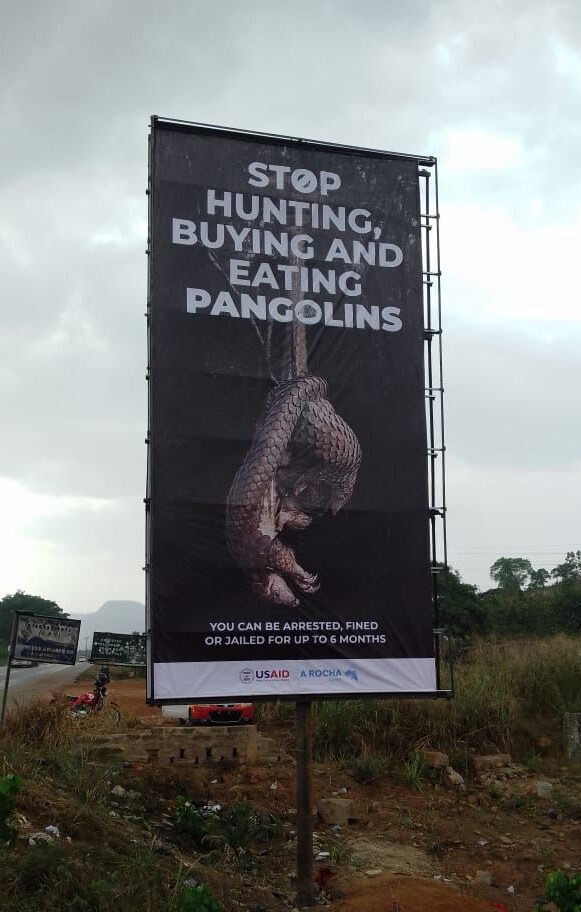
The Abossey Okai Chop Bar is not the only eatery that has ditched the pangolin meat for good. Obaa Joe Chop Bar, a popular eatery at Ahwenease— one of the communities around the Atewa Forest has also stopped. According to the chop bar operator, she could purchase about five pangolins in a day but when she heard she could be arrested for selling pangolin meat, she stopped buying from poachers and stopped selling completely. Today, Obaa Joe has several Pangolin posters splattered on her walls, echoing her support for protecting endangered species.
Some more push
Every year, our interactions with people on our campaign trail give us different insights into the pangolin trade and why it has thrived in certain areas. Bush meat sellers around the Asaman Tamfoe, Anyinam and Osino areas have accused hunters and poachers as the main perpetrators of the Pangolin trade and have asked for more education and sensitization to be targeted at the hunters. According to them, the trade will reduce drastically if the hunters stop poaching. With constant engagement, it is possible to recruit local hunters as agents of change who would go all out to support the fight to save Pangolins.
The bush meat traders say they have stopped buying from the hunters and that is the little way they can contribute to the campaign.
At Pameng, an Assembly Member for the area, Hon. Antwi Atua Eugene has pledged allegiance to pangolins. He recognises the importance of protecting them for the forest’s well-being and hopes for more collaboration with government and state agencies in the quest to protect Pangolin and combat the illicit trade of the animal.
